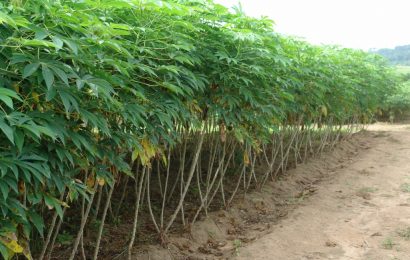
A Non-Governmental Organisation (NGO), Solidaridad West Africa, on Wednesday in Abuja identified the need for Nigeria to set up mechanism to reposition the country’s oil palm value chain as part of measures to enhance rapid economic growth.
According to the Group. The call is based on the outcome of a research carried out by the organisation on Nigeria’s oil palm sector.
Presenting the findings, Mr Kene Onukwube, Cordinator of the NGO said that the study of the country’s palm oil sector was conducted in 25 oil palm producing states in the country.
They include Bayelsa, Rivers, Abia, Imo, Edo, Delta, Ondo, Cross Rivers and
Akwa-Ibom.
Others are Osun, Ogun, Oyo, Abia, Anambra, Imo, Enugu, Ebonyi, Benue, Nasarawa, Kwara, Kogi, Kwara, Plateau and Taraba.
According to him, it is carried out essentially to understand the vulnerabilities participants in the sector experience by reasons of climate, culture and socio- economic situations in the country.
He expressed worry that Nigeria’s palm oil production that accounted for 43 per cent of the world production in the 1960s plummeted to approximately between three per cent and five per cent of the total global output.
“The country has now become a net importer of palm oil,’’ he added.
Onukwube stated that vulnerabilities such as insecurity and other environmental risks could determine the extent the country could grow in palm oil production.
“If Nigeria begins to turn its face to palm oil as it intends, it must capture the implications of these vulnerabilities on the entire value chain from cultivation to the factory,’’ he added.
The coordinator noted that palm oil production had gained prominence in the international market recently.
“This is due to the increasing demand for palm oil as raw material for biodiesel and strict policies on trans-fat foodstuffs in Europe and the U.S.
“While there are extensive environmental and social risks associated with oil palm farming, the National Initiatives for Sustainable and Climate-Smart Oil Palm Smallholders (NISCOPS) is Solidaridad West Africa Nigeria’s intervention strategy to navigate these challenges.
“This is in order to reposition Nigeria’s oil palm value chain for growth,’’ he said.
Onukwube disclosed that there was a huge gap for the private sector to complement efforts of government on enabling policies such as national policy for climate smart agriculture, replanting/ distribution,
certified seedlings supply, better land tenure and credit.
He further said that farmland expansion and urbanisation pose serious challenges for forest conservation, biodiversity, land use conflicts and livelihood sustenance.
“Women are many times most affected due to loss of land and have difficulty transitioning to other employment.
“Similarly, in a bid to circumvent issues of soil degradation, small and medium holder farmers are expanding planting in forest areas.”
According to him, there are extensive challenges associated with oil palm farming, stressing the need for better and broader planning to assist farmers and other stakeholders better navigate the risks.
“Some key issues include low production and poor quality, soil degradation, low planting and replanting, weak input supply chain; poor milling methods, equipment and poor waste management, land tenure policies,’’ Onukwube said
He said that the study adopted as its methodology, combined primary research, through surveys and focus group discussions, review of secondary materials and interviews with key stakeholders.
“Both primary and secondary data were collected for the scoping study.
“We utilised a four-phased integrated approach to execute our review process and field data collection,’’ Onukwube said.






